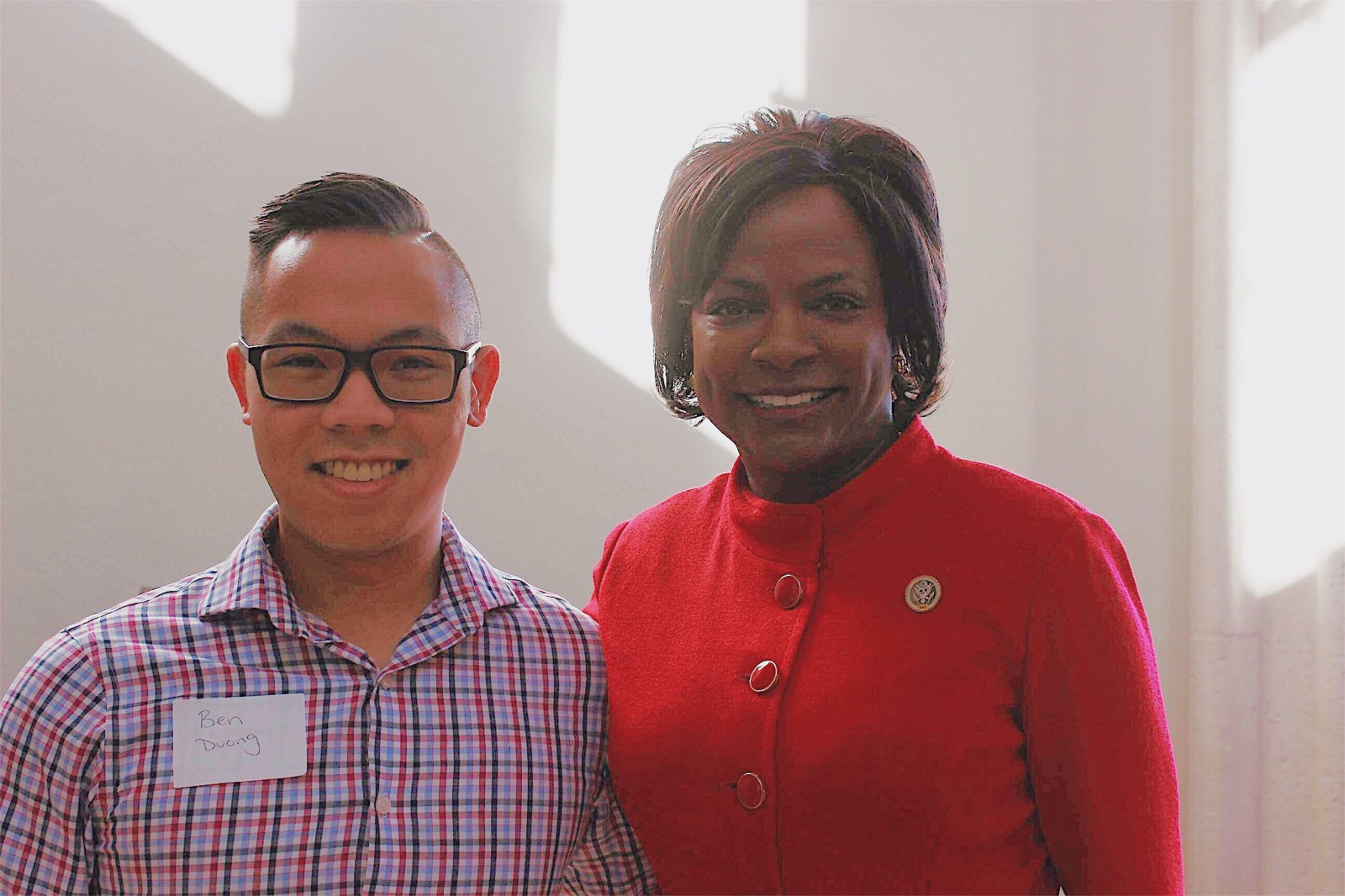By: Benjamin Duong
“Speak now, even if your voice quivers,” are words I’ve heard AMSA Fellows say to center themselves, like palming a paper clip before speeches. I know that feeling.
My first time in Washington, D.C., to meet with elected officials about anything was AMSA Advocacy Day. I was an Advocacy Liaison who trained months beforehand to help plan and lead appointment groups. I remember feeling outclassed: A seemingly lone undergrad amongst swathes of successful, white-coat-clad medical students who were serving as other Liaisons.
It was surreal standing on the lawn of the United States Capitol in the afternoon. We’d spent the morning in Congressional buildings training on policy issues and learning about speaking with legislative offices. Being surrounded by D.C.’s history was just as infectious and energizing as being with my peers. It was empowering and warm to have medical trainees, from premeds through graduated physicians, speaking like a family in one place with one purpose.
My first appointment was with a large delegation to our Senator’s office and went well, but I dreaded the second. I was the only student from my Congressional district. Alone again.
Nervous, I met with the Health Policy Aide for my Congressman. What was supposed to be about a half hour meeting turned into an hour, which I know now isn’t typical. But I was shocked at how engaging, relaxed, and fluid our conversation was. Before I left he’d guaranteed to have our Congressman support our asks. In our follow-up emails he remained personable and helpful because of the rapport we’d built.
I’ve been to two Advocacy Days with AMSA, both times as a Liaison. This year makes my third. I’m harrowed by what is at stake because the Higher Education Act–the law that dictates how financial aid operates in the United States–is up for reauthorization.
Borrowing limits for professional student loans, and funding for repayment programs and forgiveness programs are all threatened. Thousands of medical students are in jeopardy of being unable to receive sufficient federal financial aid to cover the cost of attendance to medical school. More may be caught in a lifetime challenge to payback educational debt accrued by so many years of required training. This could especially hurt the underrepresented and underserved students among our peers who often come from poor economic backgrounds and need favorable loan programs to dream of going to medical school.
Each AMSA Advocacy Day I’ve attended, I’ve come away impressed with the diversity of students advocating alongside me. I’m Vietnamese and my parents were refugees. As I complete my Master of Public Health now at George Washington University and matriculate to medical school this summer at the Alabama College of Osteopathic Medicine, I understand that diversity is critical to public health outcomes because people need physicians that they can relate to. That’s why this year at AMSA Advocacy Day we will make asks to protect provisions in the Higher Education Act that ensure economic restraints don’t hold back potential physicians from seeking the career they want.
From experience, I know that each of our voices matters. If I can walk into a Congressman’s office for the first time by myself as an undergraduate and get them to fight for global health issues, imagine what we can do together, as medical students, advocating for an important issue right here at home.
Benjamin is an MPH Candidate at the George Washington University Milken Institute School of Public Health and AMSA Member from the University of Florida. He is a REAL Change Organizing and Advocacy Fellow with RESULTS.
Sign up here to join us on Capitol Hill for Advocacy Day at AMSA’s 2018 Annual Convention and Exposition, to be held March 8-11, 2018, in Washington, D.C.

